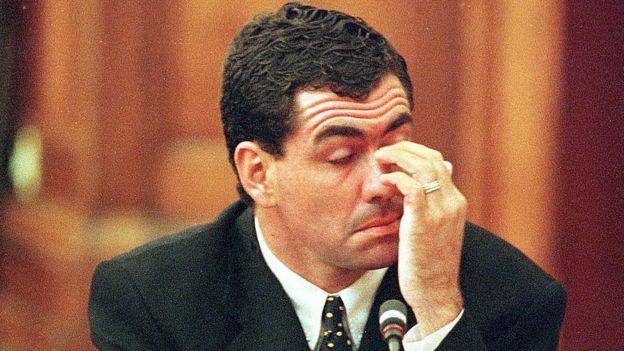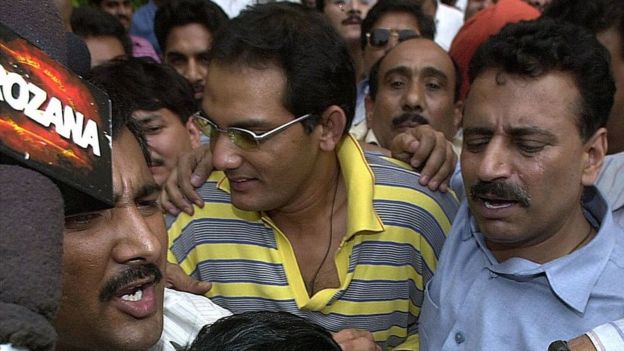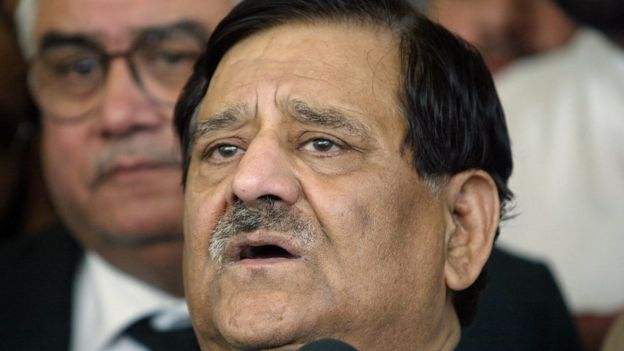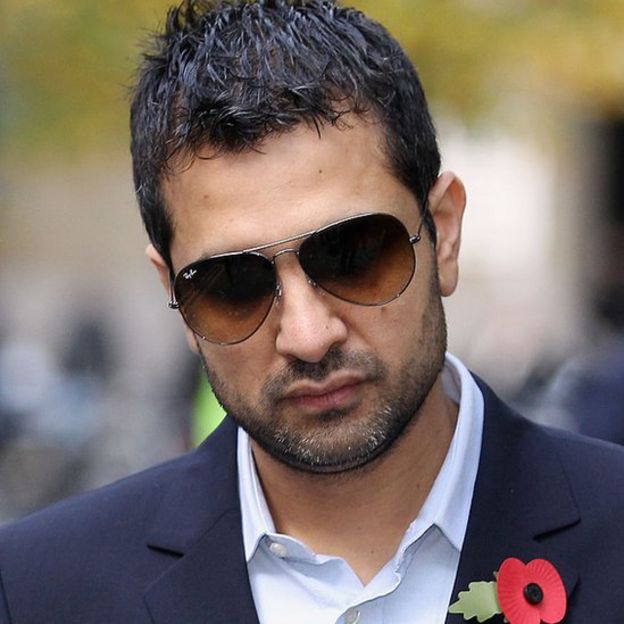20 years of match-fixing scandal: How were cricketers caught by phone calls? |
It was the year 2000 when one match-fixing scandal after another and the actions and reports of the commissions of inquiry set up as a result shook the world of cricket.
Pakistan. South Africa and India were its centers but obviously its devastating effects were felt all over the cricket world.
On the one hand, the report of the Justice Malik Muhammad Qayyum Commission in Pakistan came to light, on the other hand, the report of the Central Bureau of Investigation (CBI) in India had blown everyone's mind and they laughed at the King Commission in South Africa. The confession of the crime had destroyed the credibility of the transparency of the game.
All these match-fixing stories had in common the fact that the contacts of the bookmakers of the corrupt cricketers were traced through their telephone calls.
 JTN IMAGES
JTN IMAGESTelephone conversation with Hansi Cronje's bookmaker.
'Hello. High . Laughter. '
'Hello . Hi Sanjay. '
When the Delhi Police officers overheard the telephone conversation after these formal remarks, they wondered why a bookmaker was in touch with a South African man.
In fact, the Delhi Police was monitoring the mobile phone calls of various businessmen in the case of extortion, but they themselves did not realize that something bigger had come into their hands.
On March 13, 2000, the Delhi Police Crime Branch identified the voice of the person involved in the conversation with bookmaker Sanjay Chawla in a suspicious phone call.
On April 7, 2000, the Delhi Police, based on their investigation, registered a formal case of fraud against Sanjay Chawla. It was the first time in international cricket that a cricketer was charged with match-fixing.
Delhi Police had also released a full draft of the telephone conversation, which included the names of a few other South African cricketers in addition to match-fixing transactions.
Hansi Kronye had at first denied his involvement in match-fixing but later admitted that he had not told the whole truth before. Not only was he captained but he was also banned for life.
The South African government set up the King's Commission after serious allegations of match-fixing surfaced. In his statement before the King Commission, Cronje revealed that it was Azharuddin, the captain of the Indian cricket team, who allegedly introduced him to the bookmaker.
Cronje was killed in a small private jet crash on June 1, 2002.
 JTN IMAGES
JTN IMAGESAzharuddin banned for life
The Central Bureau of Investigation (CBI) of India completed its investigation into match-fixing and released a report in November 2000, according to which Azharuddin was banned for life.
Ajay Sharma, who played a Test match, was also banned for life, while Ajay Jadeja, Manoj Prabhakar and Indian team physio Dr Ali Irani were banned for five years.
Latif 'sAudio tapes provided
Former Pakistan cricket captain Rashid Latif was the first cricketer to speak out against alleged match-fixing in Pakistani cricket.
At the request of the Pakistan Cricket Board, the government of Pakistan set up a one-member commission comprising Justice Malik Mohammad Qayyum on August 13, 1998. Rashid Latif presented some audio tapes to the commission, which recorded the conversations of some of his fellow cricketers. Allegedly related to match-fixing.
Rashid Latif was allegedly offered match-fixing during the 1993 Test match between Pakistan and Zimbabwe in Rawalpindi.
This was at a time when reports of contacts with suspects surfaced during the Pakistani team's tours of Sri Lanka, New Zealand and Zimbabwe, and the team's manager, Intikhab Alam, had to take an oath from the players on the Koran. Was
Meanwhile, Rashid Latif and Basit Ali announced their retirement from international cricket during their tour of Zimbabwe.
 AFP
AFP
When Rashid Latif raised his voice about suspicious activities in the team, a friend asked him if he had any evidence. When the answer was no, this friend had asked Rashid Latif how he could prove his point without proof.
Rashid Latif later came forward with audio tapes as evidence but even after a long time he is not ready to reveal how this conversation based on alleged involvement of some Pakistani cricketers in match-fixing was recorded and his How did these tapes arrive?
It may be recalled that Justice Malik Mohammad Qayyum Commission had recommended life ban on former captain Saleem Malik and fast bowler Ata-ur-Rehman after completing the match-fixing probe while Saleem Malik, Wasim Akram, Mushtaq Ahmed, Ata-ur-Rehman, Waqar Yunus and Inzamam-ul-Haq. , Akram Raza and Saeed Anwar were fined.
How important is sound evidence in law?
Speaking to BBC Urdu, Justice Malik Mohammad Qayyum said that the audio evidence could not be relied upon in the court unless it was forensically verified. And helped move the commission forward.
During the King's Commission hearing in South Africa, Justice EL King also made it clear that if South African cricket is to be cleansed of corruption, cricketers' phone calls and e-mails must be closely monitored and the South African constitution must do so. I will not violate the existing human rights provisions.
 JTN IMAGES
JTN IMAGESHow did Salman Butt get hit?
Even before the News of the World's sting operation in 2010 about the involvement of Salman Butt, Mohammad Asif and Mohammad Aamir in spot-fixing, there were some things that shocked the then captain of the team Shahid Afridi.
Shahid Afridi has detailed in his book Game Changer that Mazhar Majeed was very close to the players during the Pakistan cricket team's tour of Sri Lanka during which his mobile phone was damaged by his son.
Mazhar Majeed called in London to fix it. While fixing the phone, the Pakistani shopkeeper saw the messages between Mazhar Majeed and Salman Butt.
Shahid Afridi wrote that he was shocked when the messages reached him through the shopkeeper and a mutual friend.
Shahid Afridi writes in his book that all-rounder Abdul Razzaq had also informed him about the suspicious links between Mazhar Majeed and Salman Butt but he did not believe that it could happen but when he read those messages himself he guessed. It turned out to be a bad thing.
Shahid Afridi says that he informed the head coach Waqar Younis and the manager Yawar Saeed about this situation but they were not listened to but Yawar Saeed even said what can we do about it?
In view of this situation, Shahid Afridi announced his retirement from Test cricket and Salman Butt was appointed captain in his place.
But during the same visit, a spot-fixing scandal came to light as a result of which Salman Butt, Mohammad Asif and Mohammad Amir were not only facing sanctions by the ICC but were also sentenced by a British court. Mazhar Majeed was also sentenced to 32 months in prison.




No comments:
Post a Comment